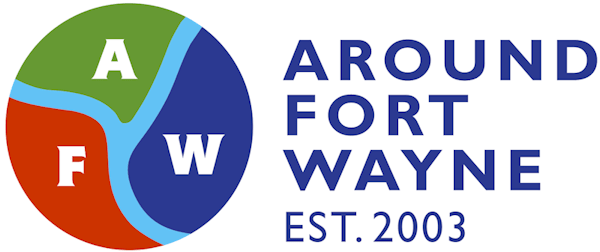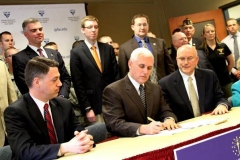![]()
An e-mail from Indiana State Senator Dennis Kruse (R-14th):
Sen. Kruse: Senate education committee votes to put students first, reward effective teachers
(February 17, 2011) – Members of the Senate Committee on Education and Career Development voted 7-2 Wednesday in support of a bill aimed at helping local schools identify and reward effective teachers.
Sen. Dennis Kruse (R-Auburn), author of Senate Bill 1, said the measure now moves to the full Senate for further consideration.
“I crafted this legislation to help identify and reward effective teachers and offer assistance to those who are not improving through fair and rigorous evaluations,” said Kruse, chair of the committee. “If we expect our Hoosier children to perform at the highest level and compete in a global marketplace, we want to improve our educators. I look forward to continuing my work on this bill and shepherding it through the legislative process.”
Kruse said Senate Bill 1 was amended to include a due process provision allowing teachers who do not receive raises or increments, or those who are rated ineffective, to receive a private conference with the school principal and subsequently with the superintendent. Kruse said teachers would be able to have representation present at the meeting.
As amended, a school corporation would have to submit its staff evaluation performance plan and local salary schedule for publication on the Indiana Department of Education’s (IDOE) website. Kruse said these provisions would allow other corporations and the public to know what is being done.
Kruse said his legislation addresses three key areas: teacher evaluations; a rating system for those evaluations; and changes in licensing, contracts and hiring.
Gauging Teacher Effectiveness, Student Learning
Under Senate Bill 1, local school corporations would develop a plan for performance evaluations which would include three key elements:
[list type=”black”]
[li]Annual evaluations of teachers;[/li]
[li]Objectives for annual student achievement and growth; and[/li]
[li]Explanations for teacher evaluation results and a defined time period for teacher improvement.[/li]
[/list]Kruse said evaluators would be approved by the principal, have a record of effective teaching and be trained in evaluation skills. Experienced teachers or outside personnel could perform the evaluations.
Individual results of the annual evaluations would be discussed with each employee within seven days of the review. Kruse said it is important evaluators quickly and thoroughly review the results with staff members to recognize strengths, identify weaknesses and maximize impact.
Each year, school corporations would provide staff evaluation results – excluding names or personally identifiable information – to the department for publication online.
“I believe local school districts should evaluate its teachers honestly and regularly, to ensure each child is receiving the best possible education,” Kruse said.
Identifying, Rewarding Best Teachers
Educators who receive either of the two lowest ratings on their yearly review would participate in a remediation plan following their evaluations, Kruse said.
Kruse said salary increases for “highly effective” and “effective” teachers would be based primarily on student improvement and academic performance – not years of experience or additional degrees earned. This system would be effective in the 2012-2013 school year.
Part of the money previously allocated toward additional degrees or credit hours would be used to reward classroom performance, school leadership assignments or incentives to teach high-priority subject areas or grade levels.
No automatic pay raises would be given to teachers who receive “ineffective” or “improvement necessary” ratings.
Empowering Principals, Local Superintendents
Kruse said the state board would also determine how staff evaluations will impact the issuance, renewal or reinstatement of a teacher licenses.
Teachers who are consistently rated as “ineffective” and demonstrate poor performance would face contract cancellation.
Senate Bill 1 also specifically assigns district-level hiring to superintendents and school-level hiring to principals. School boards would execute employment contracts designated by the superintendent or principal. Kruse said school leaders should be given the flexibility needed to improve outcomes for students.
Kruse’s legislation gives charter schools the flexibility to hire certified or non-certified teachers and staff based on the circumstances and needs of the school.
Related weblinks:
Senate Bill 1
Senator Dennis Kruse’s website


